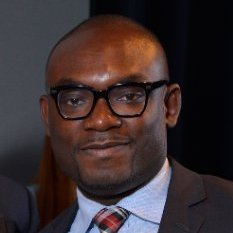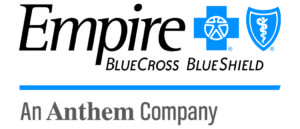In the last five years, over 100 CIR members and alumni have traveled to Haiti to volunteer as part of the continuing medical relief efforts through scholarships provided by the CIR Policy & Education Initiative.
This year, a record number of CIR members applied for the scholarships, and twenty-five were selected to receive one. Volunteers deploy for week-long trips with Project Medishare, a non-profit organization dedicated to helping provide quality healthcare for the people of Haiti.
Dr. Emmanuel Ofori, an internal medicine resident at Brooklyn Hospital Center in New York City, recently returned from his volunteer deployment at Hospital Bernard Mevs and spoke with us about his experience.
What made you decide to apply for the grant and volunteer?
In med school I was a very big advocate for volunteerism and getting into the community, and in residency I’ve not really found the time to get back to that level of volunteering, so I saw this as a really awesome opportunity to get a shot to volunteer a little bit in Haiti. And Haiti is a country that I’ve always wanted to visit.
What kind of setting was Hospital Bernard Mevs?
It was inpatient. The hospital is compound-based – we had a small ER, a few offices, a four-bed ICU, which is kind of interesting, and a med-surg unit. It was cool, you could see they were doing the best they could with what they have. But it was very much a learning process for me.
Was everyone just private pay – patients paid a fee for each service?
Yeah, pretty much. I think they said up until a few years ago [services] were free for everybody and now they charge for supplies and everything. But I think it’s the only trauma center in Haiti – everything comes to them, all the trauma cases.
What was a typical day like?
Basically my schedule usually started around 8:00. I’d wake up in the morning, shower, go to breakfast around 7:30, and then from there go to the medical ward, the med-surg unit, all along saying “Bonjour” to everybody.
It was an eight-bed unit so I’d greet the patients and nurses, “Bonjour,” with my Creole and a lot of gesturing and facial expressions, try to figure out if there’s anything that happened acutely overnight, if any other doctors, consultants came through to write charts. The charts were interesting, part in Creole, part in French, and some doctors wrote in English. I think on the weekend, Sunday, I was the only medical doctor in the med-surg unit, so I basically rounded there and it was about six patients. It ranged from active TB to post-op patients who were post-thyroidectomy, amputations. A lot of trauma cases.
Most of the work in the med-surg unit was done in the morning. Sometimes [in the afternoon] I’d go to the Emergency Room and try to see if the Emergency Department doctors needed help with any of their patients. The ED was also an interesting place; you never know what’s walking through the door. And usually the ED would take a few hours and then I’d come back to med-surg in the evening. It was a great experience.
What was it like working with the Haitian staff?
Most of them were willing to help you and willing to talk to you and also get to know your experience and where you come from and all that. They’re welcoming, and also expected you to be open and wanting to know about their country, their culture, their experiences. So as long as you were polite and you were friendly enough to say “Bonjour,” “Bonsoir,” and curious about what it is you’re doing, even though the language barrier is there, quite a few of them speak English so that made it a lot easier. And those who didn’t, you’d try to practice your Creole with.
And you practiced your Creole?
I practiced my Creole. I look local so everybody who comes up to me starts talking and I have to pull the translator out and say “whoa, whoa, slow down.” But it was cool, it was really cool.
Is there anything that you learned or experienced there that you could bring back to your hospital and your work life here?
Yeah, I think my general outlook on medicine, my practice of medicine in general has been very much impacted by my experience in Haiti. For one, I talked about being money-conscious, about how much it’s costing with these tests and all these things that we’re doing. I no longer just randomly order tests, I think of the costs – is this patient actually going to be able to pay for it?
It also made me very thankful and appreciative of what we have here. Because it’s only here that you could be poor or rich and come in in a trauma scenario and still be, regardless of your monetary status, be taken care of, given the best medical treatment, and then after worry about your finances. Huge differences.
Do you want to do more global health work?
For sure. I like traveling and I think medical volunteering is an opportunity where I get to do two things that I like, travel and then also contribute in some way to the local people. I’ve always seen being in the medical field as an opportunity to be of good service to people wherever I go, so it’s a good combination of both – satisfies my curiosity for travel and trying to help people.
What’s one piece of advice you’d give to someone who’s about to go volunteer in Haiti?
Be open. Be open to the experience. It’s a tough experience in terms of – you’re going to have to give up a few of the luxuries you enjoy here, but be very open to the experience of really being there, being in the moment whenever you’re there. Because some of the people there are the most amazing people, regardless of how little they have, they have so much to give you in terms of experience.






